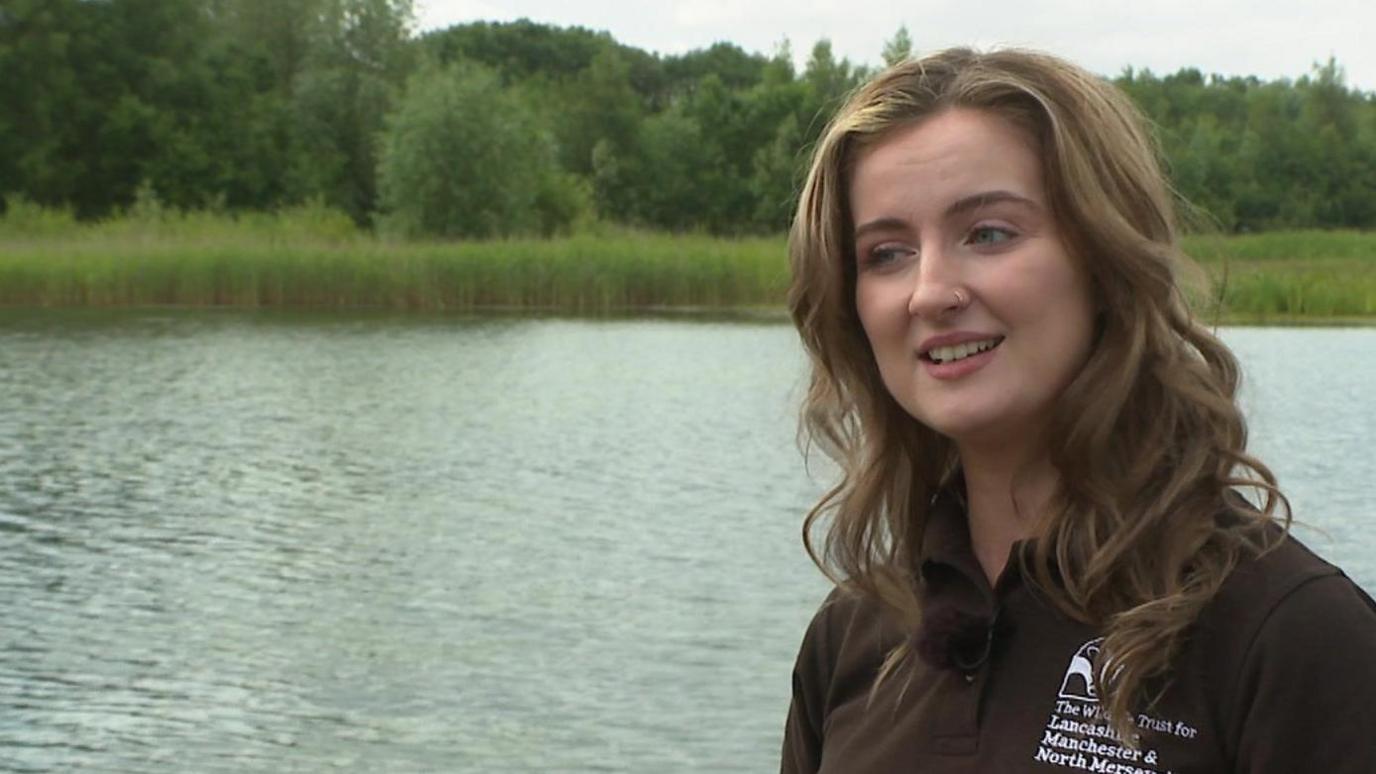Have Lancashire voters lost faith in politics?
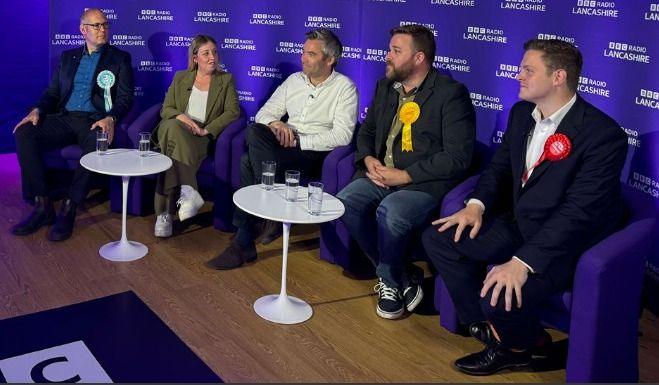
BBC Lancashire's general election debate saw Dan Barker (Reform UK), Sara Britcliffe (Conservative), Jack Lenox (Green), John Potter (Liberal Democrats), and Oliver Ryan (Labour) discuss key issues
- Published
From Carnforth to Chorley and Barnoldswick to Blackpool, Lancashire is yet again at the forefront of the national picture.
Labour are keen to win back seats they lost to the Conservatives at the last election.
Over the past few weeks we’ve seen a stream of senior Labour figures descending on the county - but senior Tories have been conspicuous by their absence.
So what’s going on?
Paula Keaveney, programme leader for Politics at Edge Hill University says it’s really surprising: “In 2019, you were tripping over Conservatives in Lancashire, you could hardly move for VIP visits”.
She says this time around, the Tory campaign is more focused on the party’s traditional heartlands in the south of England.
From speaking to voters, one of the biggest issues across the board in Lancashire appears to be the cost of living.
Pretty much everyone is feeling the pinch – including people who traditionally would’ve been relatively comfortable – and, as a result, some voters are telling me they feel big changes are needed.
Geographically, the boundary changes mean there’s one less seat in Lancashire and cause some constituencies to become completely different.
Take Morecambe and Lunesdale for example.
The seaside town of Morecambe is now in the same constituency as rural Cumbrian towns like Kirkby Lonsdale and Sedbergh.
It’s altered the dynamic of the campaign here as candidates try to appeal to voters living on the outskirts of the Lake District and the Yorkshire Dales.
In rural parts of the constituency, the Greens and the Lib Dems have performed well in local elections, giving the main two parties something else to worry about.
But in Morecambe, the proposed Eden Project is on a lot of minds. Half of the project is due to be funded with £50m of levelling up money – but some voters are worried the election could change things.
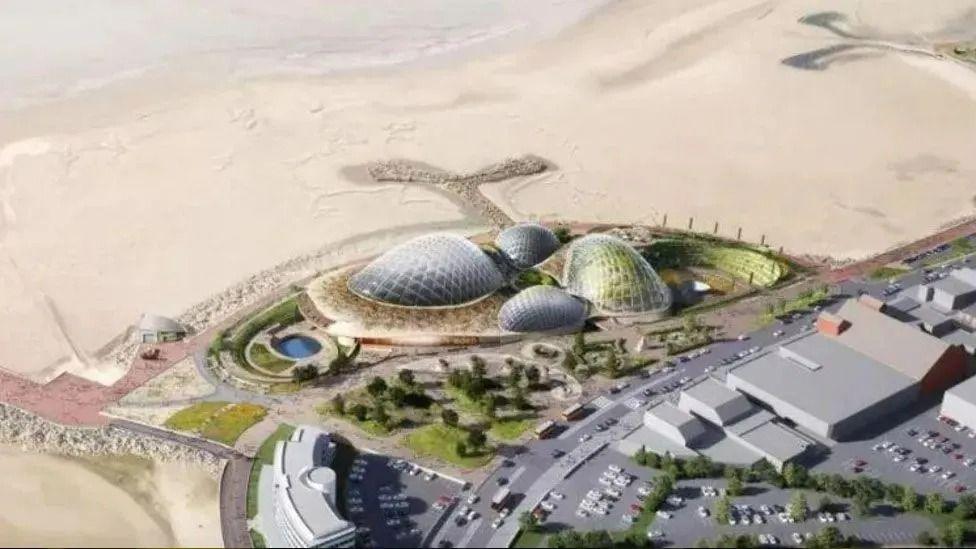
Some voters are worried the election could mean changes for the Eden Project Morecambe
Another big issue is trust. Recent political scandals, such as Partygate, have caused some voters to distance themselves from the Conservatives – but others seem to have lost faith in mainstream politics as a whole.
In Chorley, most of the main parties aren’t contesting the seat – where speaker Lindsay Hoyle is seeking re-election.
Labour is hoping to win back former heartlands like Burnley and Hyndburn – and the Tories want to hold to on to Fylde and the Ribble Valley.
Meanwhile the Lib Dems are hoping to make gains in parts of East Lancashire, the Greens fancy their chances in Lancaster and Reform UK leader Nigel Farage spent time campaigning in Blackpool recently.
The Israel-Gaza war is a significant issue in parts of East Lancashire and Preston – with some independent candidates centring their campaign on the issue.
This is an election like no other in Lancashire – there are far more candidates than I’ve ever known and for the first time in a long time, there’s likely to be an interesting story on results day in pretty much every part of the county.
Listen to the best of BBC Radio Lancashire on Sounds and follow BBC Lancashire on Facebook, external, X, external and Instagram, external. You can also send story ideas to northwest.newsonline@bbc.co.uk, external
Related topics
More like this story
- Published11 June 2024
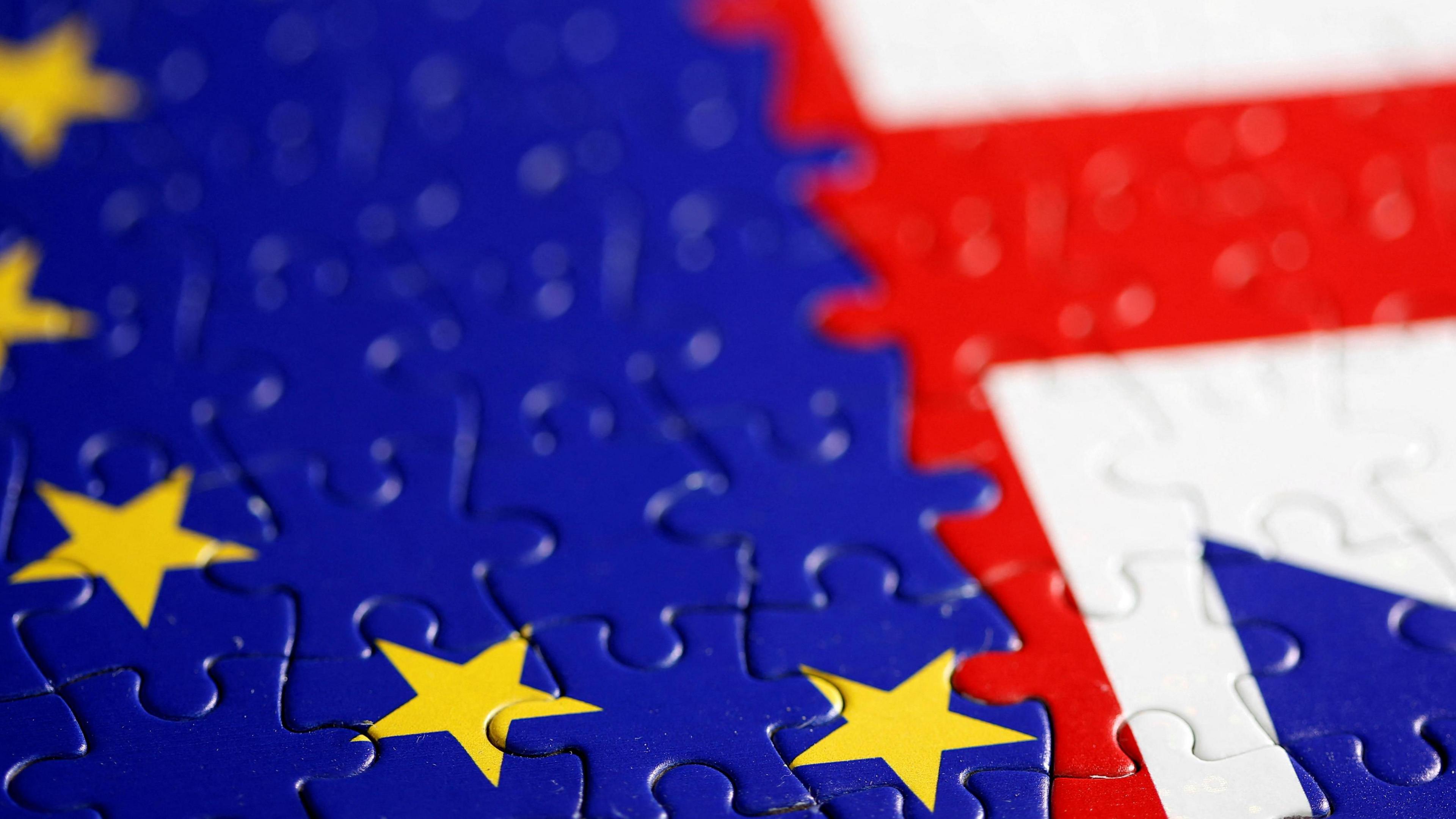
- Published26 June 2024
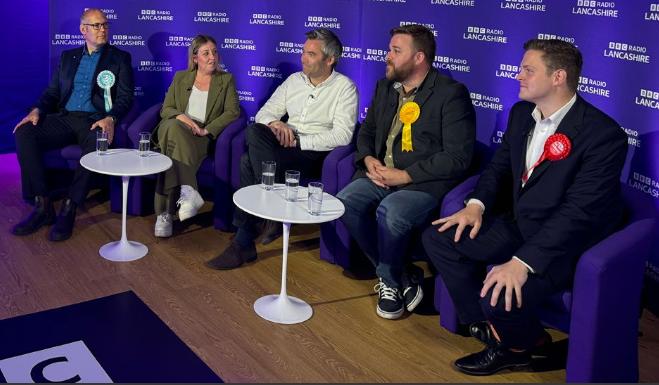
- Published27 June 2024
